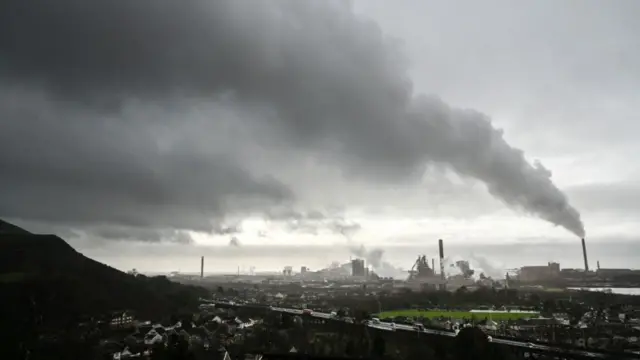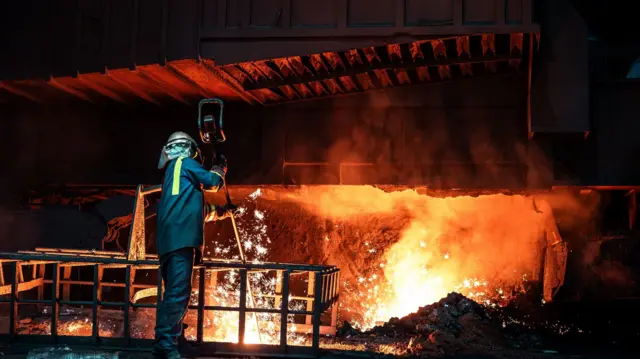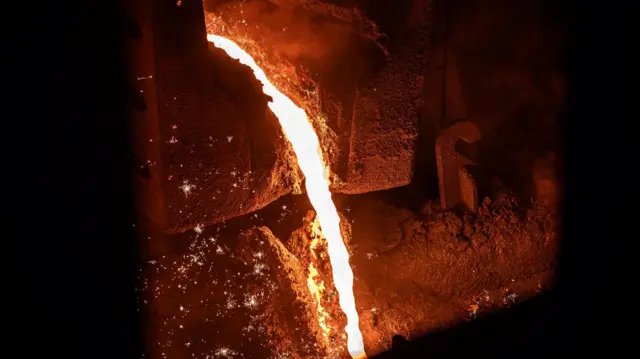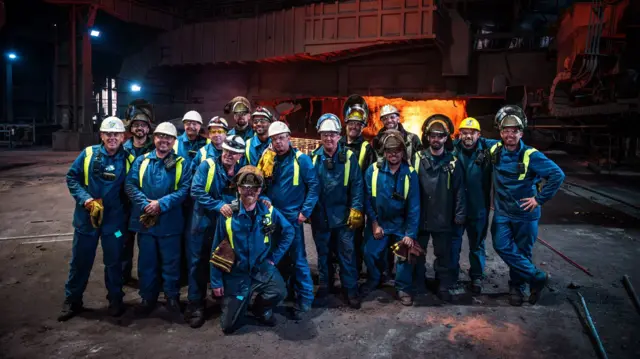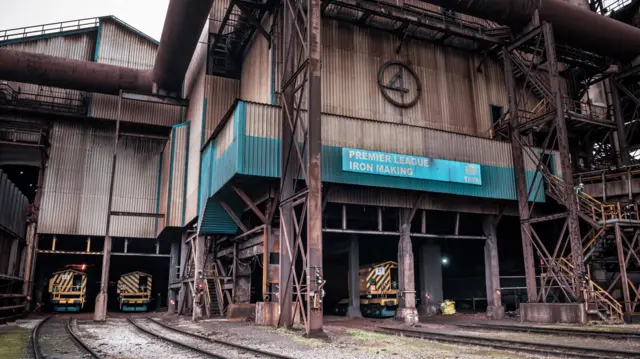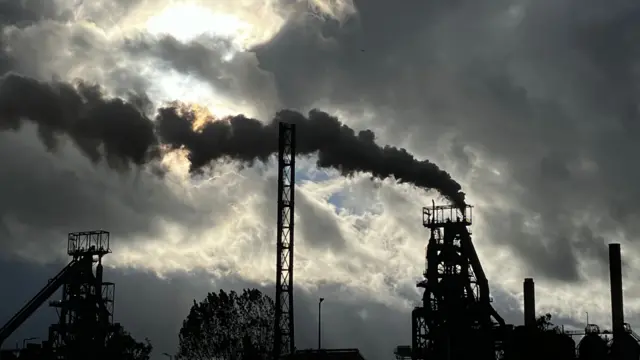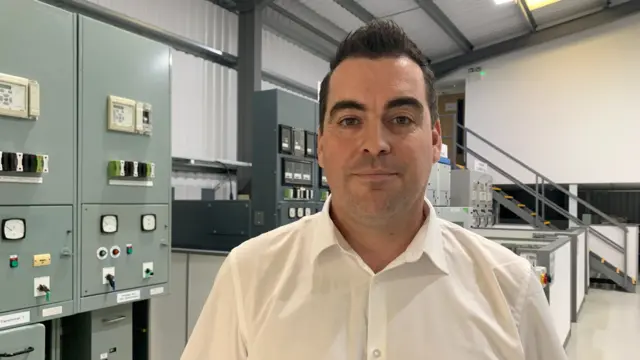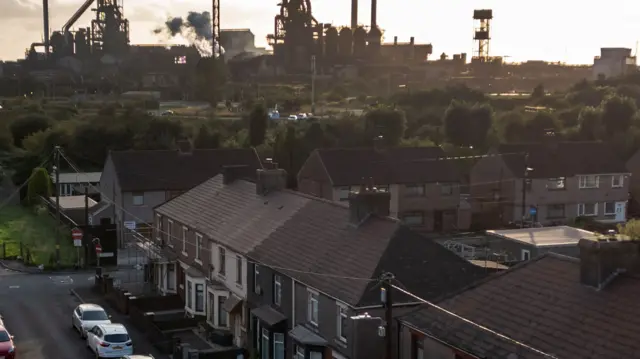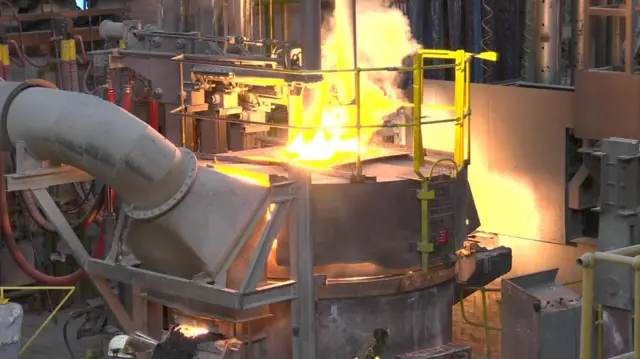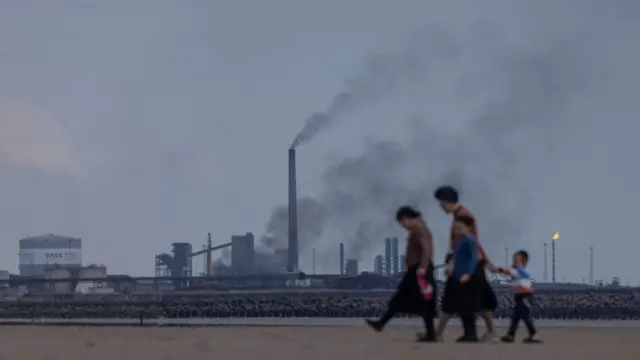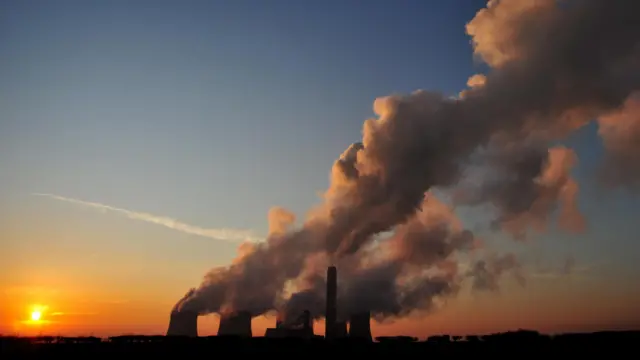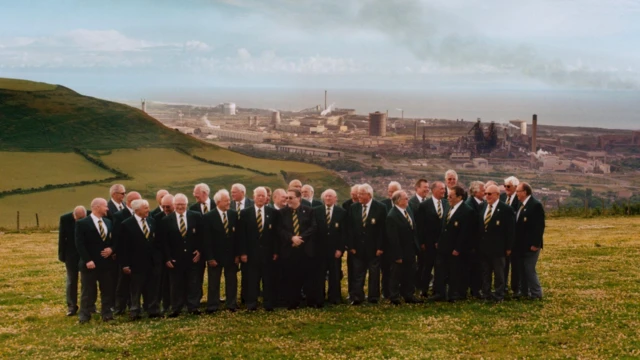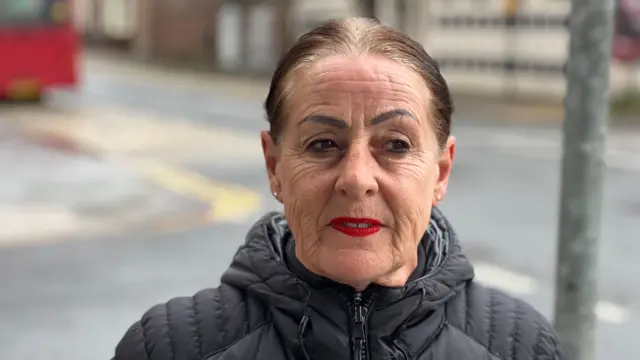Traditional steelmaking ends with 'dragon's final breath'published at 18:28 BST 30 September 2024
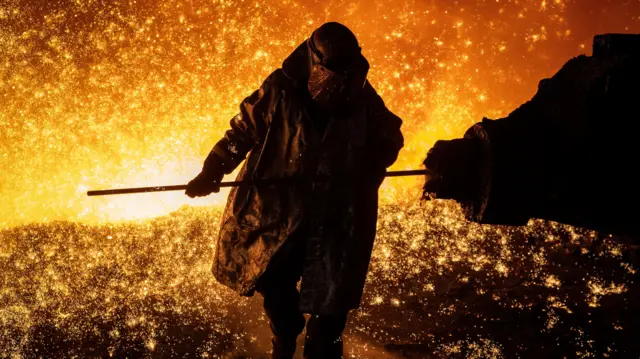 Image source, Getty Images
Image source, Getty ImagesSteelworkers have drilled the final hole in the blast furnace wall, which allows liquid iron to flow out.
The process began this afternoon and could last for some hours.
The furnace’s ability to produce liquid iron ends today and with it a century of ironmaking in Port Talbot.
When the engineers monitoring the iron decide that they’ve taken all that they can, the hole will be plugged and the furnace will officially go out of service.
So, as our live coverage of this momentous day comes to an end, we will leave the final words to Tata steelworker Cassius Walker-Hunt.
"Today marks the last shift to blow down the furnaces - the dragon's final breath.
